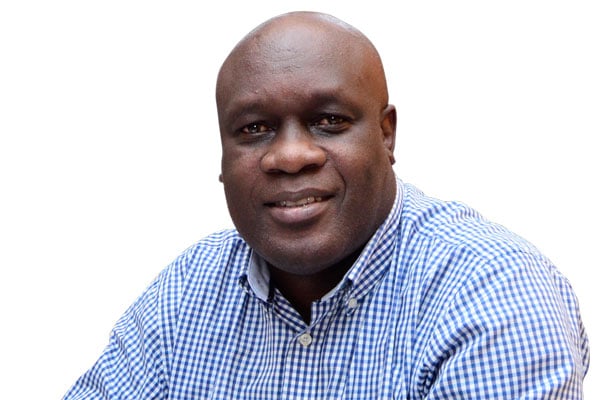Prime
What digital footprint have you left on online?

Author: Odoobo C. Bichachi is the Nation Media Group (NMG)-Uganda public editor. PHOTO/FILE.
What you need to know:
- There are about 19.1 million internet users in Uganda (UCC, 2018). This is low for a population of 44 million people. Indeed Uganda’s internet penetration stands at only 47.4 per cent.
The internet is the home of new media. It hosts the traditional legacy media as well as the open platform that citizen journalists and “netizens” thrive on every day.
There are about 19.1 million internet users in Uganda (UCC, 2018). This is low for a population of 44 million people. Indeed Uganda’s internet penetration stands at only 47.4 per cent.
By comparison, Britain’s internet penetration is 94 per cent while neighbouring Kenya’s is 85.2 per cent and Rwanda is 26 per cent.Still, half of Uganda’s population clicking away on the web every day is a huge internet activity.
You may even be reading this article online! As we go about clicking, searching, posting, et cetera on our smart phones, laptop or desktop, each of us is building a digital footprint that many times we do not think about.
Well, we all know the foot marks we leave on the ground as we walkalong a sandy beach or down a muddy patch. Digital footprints are the marks about ourselves that we leave online as we surf the internet and engage in a sorts of things on social media, emails, searches, websites, etc.
In other words, “a digital footprint is your online identity and individuality and is what makes you unique. It builds the online reputation, or impression depending on the things you do online. It is important to be aware of it because anything posted online is permanent and stays there forever regardless of being deleted.” – www.prezi.comYour digital footprint can be of benefit or it can damn you depending on what you have been doing online.
That is the reason you need to be extremely careful about what you do online – even in the secrecy of your room. Below are some general tips to help you not soil your digital:
-Think before you click
-Keep it nice
-Protect personal information
-Search yourself
-Make your online presence a positive one
-Be a good role model
(https://www.digitalcitizenship.nsw.edu.au)
Some “footprints” online are, however, involuntary and have very little to do with what you have posted, liked or not liked. They are about what has been said about you by other people online. It may be a story in a newspaper or television broadcast, or a comment about you by a third party somewhere online. That is why professional media organisations strive to get right everything they say or write about individuals since it has a bearing on their “online reputation” and any untoward content could attract legal suits. Sadly, individuals posting online tend to care less about the online reputation of others. Let’s break down online reputation a little.
“Your personal online reputation score represents the total value of your online footprint. That value is based on a number of factors, including the sum of positive, negative and neutral items that show up in Google search engine results pages (SERPs) and how they rank when people search your personal brand.” – www.internetreputation.com
Is online reputation important? Yes it is! How you behave online can build or damage your reputation/image. A bad reputation – online or elsewhere – may cost you opportunities, strain your relationships with friends and family members, and influence the way people generally look at you.
So can you erase your digital footprint the way you can sweep over the sand with a long broom so no one will ever know if you walked the beach? Yes and no! You cannot entirely erase yourself from the internet and return to the stone-age.
You can however delete some of the ugly things you have posted on your social media accounts (if no one has copied and stored them) and you can demand of media organisations to set the record straight about you if they ever featured you.
For instance, if a story was published that you were charged with corruption and after the trial you were found innocent, you can demand that a note be attached to the story to say court cleared you of the charges or investigations by police in the end found you innocent. Does it happen often? No.
As regards reputation, how can you build a good online personal reputation? A few suggestions below:
-Foster personal integrity.
-Don’t lose character.
-Regulate your online presence.
-Be transparent in your communication.
-Hold yourself accountable.
-Take inspiration from others.
-Use your opportunities wisely.
-Let the haters hate.
(https://www.searchberg.com)
Send your feedback/complaints to
[email protected] or
call/text on +256 776 500725.




